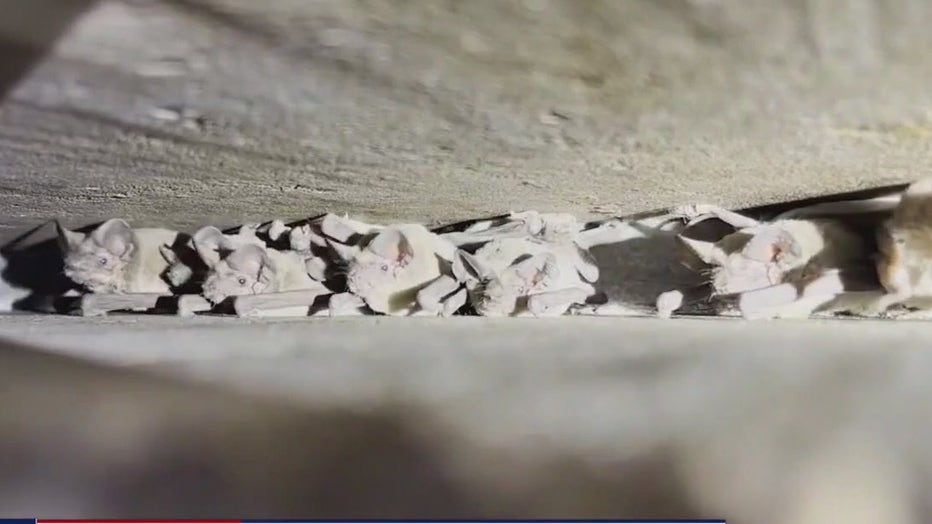Bat boxes to be installed along I-35 in Austin
Bat boxes to be installed in Austin
The Texas Department of Transportation (TxDOT) is in the process of installing more than a dozen bat boxes at the Walnut Creek Bridge on I-35. The goal is to provide habitats for bats that live under bridges being demolished near Howard Lane and Wells Branch Parkway.
AUSTIN, Texas - The Texas Department of Transportation (TxDOT) is in the process of installing more than a dozen bat boxes at the Walnut Creek Bridge on I-35. The goal is to provide habitats for bats that live under bridges being demolished near Howard Lane and Wells Branch Parkway.
The multi-million-dollar Interstate 35 Capital Express North Project will come with the installation of 36 artificial roosts for the bat population in Austin. This summer, TxDOT says it's installing 18 of those under the Walnut Creek Bridge along interstate 35.
"I am upset about the entire project. It has affected my neighborhood because I live on the east side close to the highway, so I don't think they have given enough attention and thought and sympathy to humans, but I am glad they are doing something about relocating the bats," says Austin resident Steve Wilson.
TxDOT plans to demolish a pair of bridges that the bats live in the crevices of during the construction of the project that was created to improve the flow of traffic.
"We have bats on bridges, two bridges, Howard Lane and Wells Branch Parkway," says TxDOT biologist Tracy White.
According to TxDOT, the bat boxes range from $3,000-4,000 and are capable of providing roosting and maternity colony opportunities for thousands of bats.
"You pop it in, and you wedge it in, so these struts kind of lodge up against the beam so they fly here, land here, and then crawl up in roost. These bat boxes can last anywhere from upwards of 10 years, even 20 years," says White.

"It looks like a nice system they have figured out for their relocation to get them started, it sounds like some type of artificial colony that would help them maybe jump start a new home here," says Wilson.
TxDOT says the Walnut Creek Bridge was selected because it is distant from humans and close to natural resources in the area.
"I think it would be a reliable source of water and mosquitos for them and plenty of places to kind of perch and fly around without much hassle and confusing light at night," says Wilson.
"They eat tons and tons of insects annually. They help farmers, we want a good functioning ecosystem, and we want to take care of our natural resources, which are these bats," says White.
The latest installations will support the Brazilian free-tailed bats. TxDOT says it may take some time for the bats to find their new accommodations.
Construction for the I-35 Capital Express North project started in March 2023 and is expected to be completed in late 2028.

